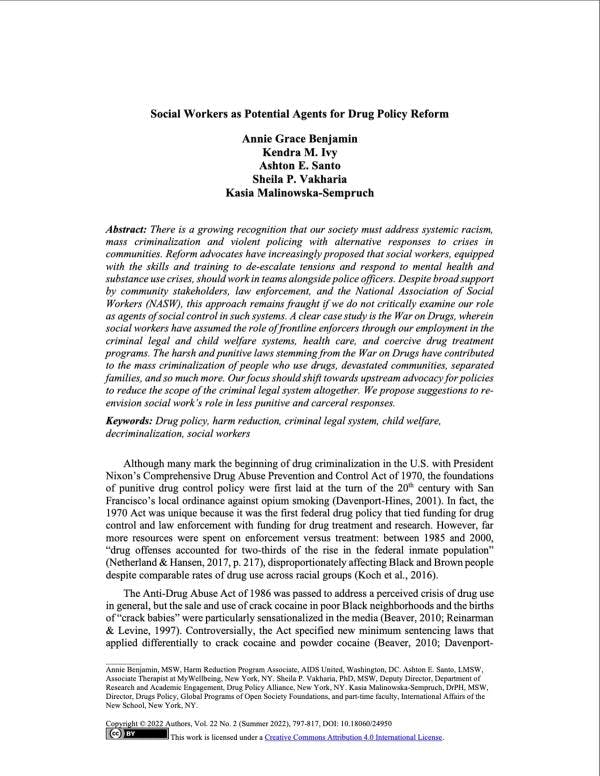Social workers as potential agents for drug policy reform
There is a growing recognition that our society must address systemic racism, mass criminalization and violent policing with alternative responses to crises in communities. Reform advocates have increasingly proposed that social workers, equipped with the skills and training to de-escalate tensions and respond to mental health and substance use crises, should work in teams alongside police officers. Despite broad support by community stakeholders, law enforcement, and the National Association of Social Workers (NASW), this approach remains fraught if we do not critically examine our role as agents of social control in such systems. A clear case study is the War on Drugs, wherein social workers have assumed the role of frontline enforcers through our employment in the criminal legal and child welfare systems, health care, and coercive drug treatment programs. The harsh and punitive laws stemming from the War on Drugs have contributed to the mass criminalization of people who use drugs, devastated communities, separated families, and so much more. Our focus should shift towards upstream advocacy for policies to reduce the scope of the criminal legal system altogether. We propose suggestions to re-envision social work’s role in less punitive and carceral responses.
Downloads
Regions
Related Profiles
- Advances in Social Work
